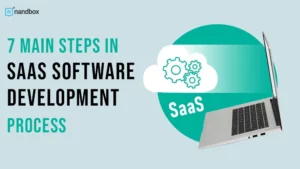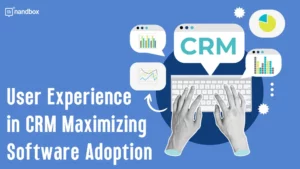Entrepreneurs and startups face unique challenges in building impactful marketing strategies in an increasingly regulated and data-driven business environment. A staggering 68% of consumers report concerns about how their personal data is handled, and 57% of businesses have faced fines for compliance violations in recent years. These figures underline the need for robust entrepreneurial marketing approaches that attract prospects and respect regulatory boundaries.
The solution lies in compliance, feedback-driven strategies, and the right tools. Below, we explore how businesses can enhance marketing outcomes while maintaining trust and following the law.
Why Email Compliance Matters
Email remains one of the most powerful marketing tools, with a return on investment (ROI) of up to $36 for every dollar spent. However, the misuse of email can damage a company’s reputation or lead to legal complications. Regulatory frameworks such as GDPR, CAN-SPAM, and CASL mandate how businesses handle customer data and use email for outreach.
Key examples of regulatory compliance include:
- Gaining explicit consent before sending marketing emails.
- Providing precise opt-out mechanisms in every email.
- Safeguarding customer data with proper encryption and handling procedures.
Adopting email compliance solutions helps entrepreneurs stay within these boundaries. Such tools automate processes like consent management, email list hygiene, and compliance monitoring, ensuring campaigns are legally sound and effective.
Surveys as a Business Quality Driver
Surveys are not just tools for customer feedback but critical for improving operational quality. Entrepreneurs can use them to gauge employee, client, and stakeholder satisfaction levels.
Types of Business Surveys:
- Customer Satisfaction Surveys (CSAT): Measure how well you meet customer expectations.
- Net Promoter Score (NPS): Understand how likely customers are to recommend your brand.
- Employee Engagement Surveys: Ensure a motivated and productive workforce.
These surveys help businesses identify weaknesses, improve efficiency, and align their offerings with market demands. Regular use of surveys fosters a culture of constant improvement, ensuring startups stay competitive.
Harnessing the Power of User Feedback Platforms
Building a successful business starts with understanding the needs and preferences of your audience. This is where user feedback platforms come into play. Companies like startups or small enterprises can leverage surveys and customer feedback tools to fine-tune their offerings.
Benefits of Feedback Platforms:
- Identify Pain Points: Learn what customers want, what frustrates them, and what they value.
- Improve Retention: Addressing user concerns improves satisfaction and loyalty.
- Innovate: Feedback can spark ideas for new features or products.
While popular solutions like SurveyMonkey dominate the market, exploring SurveyMonkey alternatives can uncover niche tools that better fit specific business needs. Examples include platforms with advanced analytics or customization capabilities to tailor surveys for unique audiences.
Strategies for Better Prospecting and Lead Generation
Acquiring new customers is essential for any growing business, but prospecting and lead generation are often challenging. Many entrepreneurs waste valuable time chasing unqualified leads, leading to poor ROI and frustration.
Proven Strategies for Lead Generation:
- Segment Your Audience: Personalize outreach by understanding the specific needs of different customer groups.
- Leverage Email Marketing: Use targeted email campaigns that align with user preferences and comply with regulations.
- Integrate User Feedback: Refine prospecting efforts by understanding why certain leads convert while others do not.
Adopting robust tools and platforms for lead generation, such as CRM systems and email marketing automation, simplifies managing and nurturing prospects.
Boosting Marketing with Attribution Tools
Many startups struggle to understand which marketing channels are most effective. A marketing attribution tool bridges this gap by providing insights into which efforts—social media ads, email campaigns, or search engine optimization—drive conversions.
How Attribution Helps Entrepreneurs:
- Measure ROI Accurately: Know where to invest your resources for maximum impact.
- Reduce Wasted Spend: Stop allocating the budget to channels that underperform.
- Optimize Campaigns: Continuously improve based on data-driven insights.
For instance, combining insights from an attribution tool with a user feedback platform can amplify your understanding of qualitative and quantitative customer behavior.
Entrepreneurs and the Importance of Trust
Building customer trust is non-negotiable, particularly for startups trying to establish themselves in competitive markets. Transparency in data handling, commitment to compliance, and acting on user feedback are critical elements of trust-building.
Tips to Build Trust:
- Communicate Clearly: Ensure your privacy policies are straightforward and accessible.
- Be Responsive: Act on customer feedback to demonstrate that their opinions matter.
- Showcase Results: Share stories or metrics highlighting your improvement based on user insights.
Tools like compliance platforms, surveys, and feedback mechanisms reinforce a business’s commitment to customer satisfaction and transparency.
The Role of Personalization in Marketing Success
Personalization has become a cornerstone of effective marketing strategies, enabling entrepreneurs to create meaningful connections with their audience. A study by McKinsey reveals that 71% of consumers expect personalized interactions, and businesses that excel in this area can boost revenue by up to 40%. Entrepreneurs can implement personalization to stand out and foster loyalty.
Key personalization tactics include:
- Dynamic Email Content: Use customer data to tailor subject lines, product recommendations, and offers.
- Behavior-Based Targeting: Segment users based on browsing or purchasing history to deliver relevant messaging.
- Interactive Content: Offer quizzes, surveys, or calculators to engage customers and provide personalized results.
- By leveraging personalization strategies, startups enhance customer experiences and maximize the ROI of their marketing efforts.
Integrating Analytics for Smarter Decision-Making
Data analytics is a game-changer for startups aiming to refine their marketing strategies. Entrepreneurs often face resource constraints, so relying on actionable insights rather than guesswork is vital. Analytics tools empower businesses to track performance, identify trends, and optimize campaigns.
Benefits of integrating analytics include:
- Improved Campaign Targeting: Identify high-performing channels and refine efforts for better results.
- Real-Time Adjustments: Respond to customer behavior with timely campaign tweaks.
- Enhanced Budget Allocation: Focus resources on the strategies that deliver the highest ROI. Adopting tools like Google Analytics or more advanced platforms like HubSpot can help startups monitor key metrics and transform raw data into informed business decisions. This analytical approach positions entrepreneurs to achieve sustainable growth.
Selecting the Right Tools for Success
Navigating the vast array of entrepreneurial marketing approaches and tools can be daunting for any entrepreneur. When choosing solutions, consider:
- Scalability: Will the tool grow with your business?
- Ease of Use: Does it integrate well with existing systems?
- Customization: Can it be tailored to your unique needs?
The right mix of tools, from marketing attribution software to compliance management and user feedback platforms, equips startups to operate efficiently and ethically.
nandbox App Builder
An essential tool for business owners trying to ensure that their entrepreneurial marketing approaches will drive results is the nandbox App Builder. Businesses can develop customized and legal marketing campaigns by utilizing cutting-edge technologies. Entrepreneurs may utilize nandbox to create unique mobile applications that comply with data protection laws, incorporating strong user authentication capabilities, consent-based push alerts, and safe payment methods. Entrepreneurs can guarantee that their marketing initiatives are not only compliant but also produce quantifiable outcomes, building confidence and enhancing client engagement, by offering a platform to directly target their audience through customized app features.
Conclusion: Creating a Sustainable Marketing Strategy
Entrepreneurs and startups have incredible opportunities to leverage data and tools to drive success. However, balancing innovation with compliance is crucial. Businesses can stay ahead of the curve by investing in email compliance solutions, exploring SurveyMonkey alternatives, and incorporating user feedback platforms.
Building sustainable and effective entrepreneurial marketing approaches requires effort and the right mindset. With thoughtful planning and appropriate tools, any entrepreneur can navigate the complexities of the digital landscape while growing their brand.







